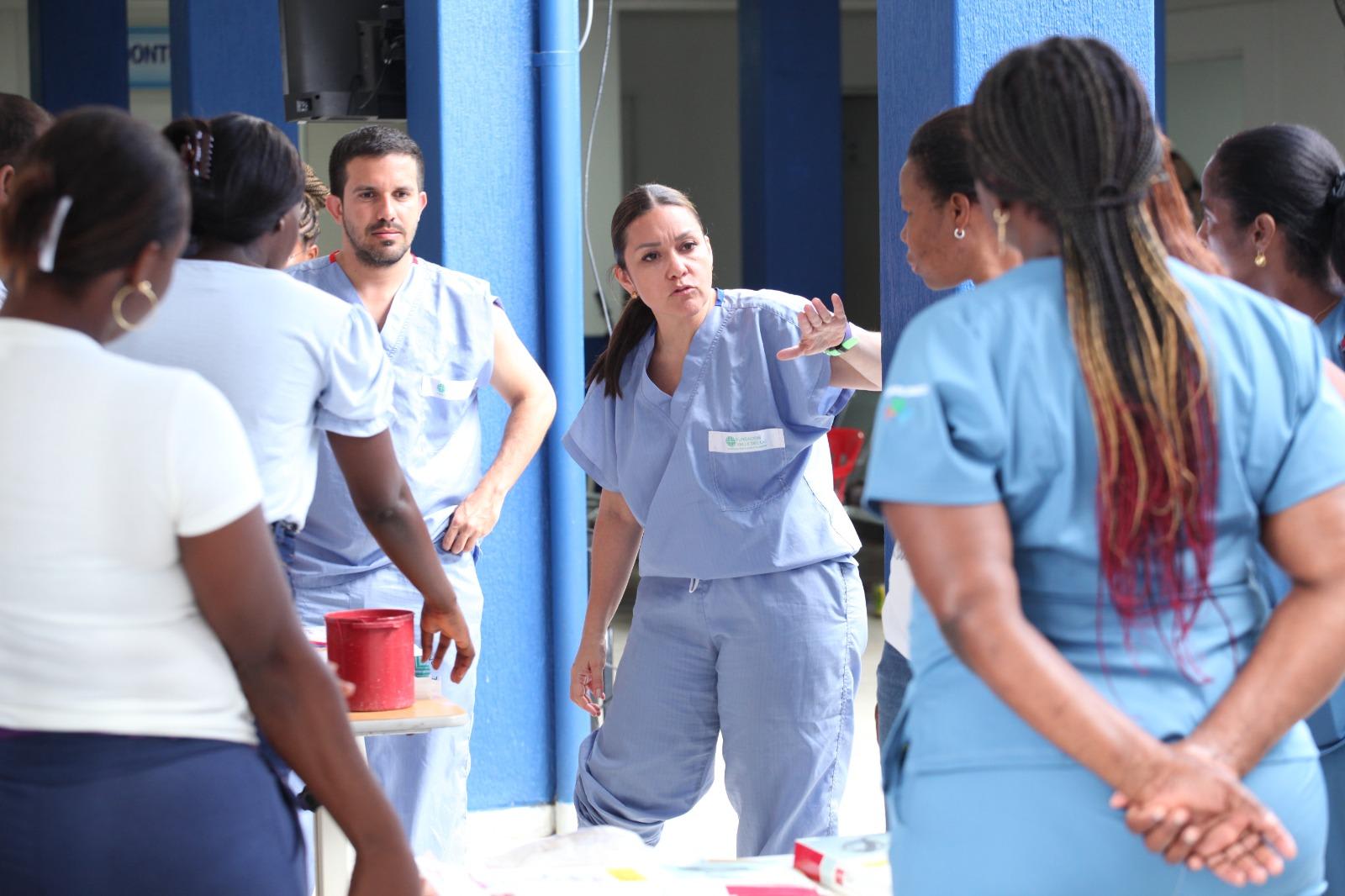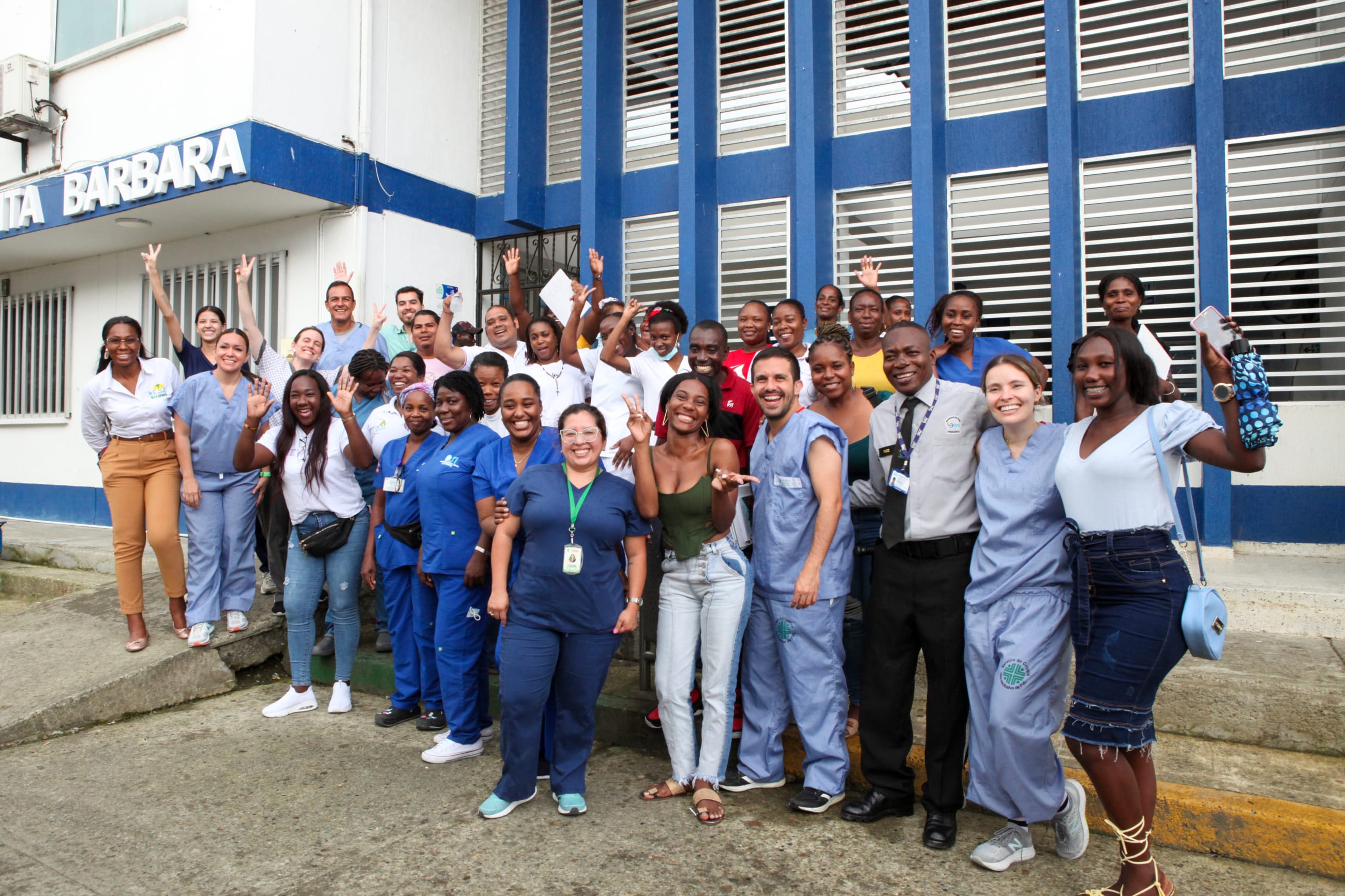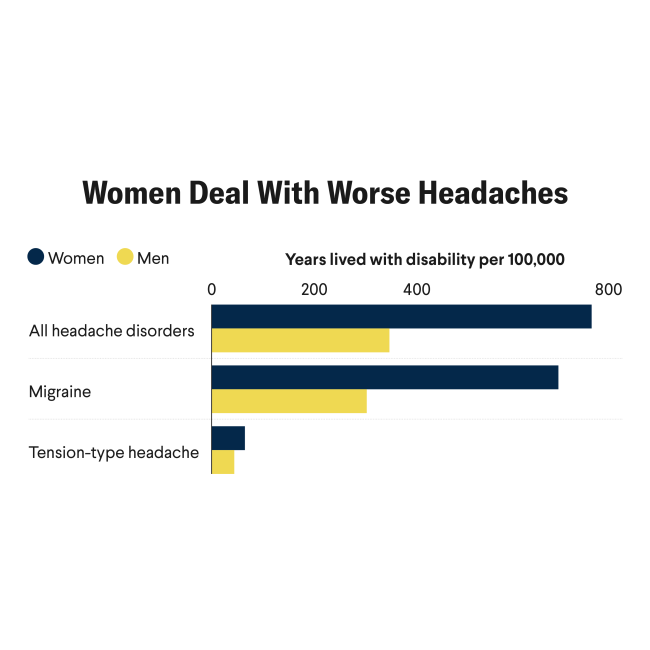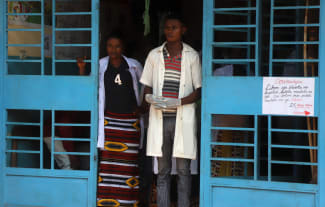In 2018, a mother of seven died during childbirth in the emergency department of the Fundación Valle del Lili, a not-for-profit university hospital in Cali, Colombia. She was one of more than sixty women from the neighboring departamento (district) of Cauca who died of maternal causes within four years, deaths that could have been avoided with the proper technical assistance, education, and telemedicine support at the right moment.
These deaths inspired the hospital to bring higher levels of care to remote and underserved communities, what would become known as the Hospital Padrino strategy.
Worldwide, an estimated 287,000 women died due to complications related to pregnancy and childbirth in 2020, losses that were even more pronounced in low- and middle-income countries where the majority of these deaths are preventable. There, maternal mortality is related to low levels of socioeconomic development, inaccessible and low-quality health services, lack of standardization of protocols, and ineffective management of hospital networks.
Colombia's maternal mortality rate has been gradually falling since 2010, in keeping with the global trend for low- and middle-income countries, but the onset of the COVID-19 pandemic reversed much of that progress. Women lost access to antenatal care and the country's maternal mortality rate jumped 24.1 percent between 2020 and 2021.
Worldwide, an estimated 287,000 women died due to complications related to pregnancy and childbirth in 2020
To reduce maternal mortality, the World Health Organization recommends that each region of a country determine priorities based on its local determinants of maternal mortality. The maternal mortality rate in Colombia's Pacific region, where the Fundación Valle del Lili is located, exceeds the national average despite a substantial number of authorized facilities that provide access to complex obstetric services. The majority of deaths are due to the quality of care, the timeliness of referral, and critical mistakes made when time is short. In Cauca, where maternal and perinatal health outcomes are even worse, the rural population has poor access to health services, faces a high rate of poverty, and is still suffering the fallout from armed conflict.
With these considerations in mind, the Fundación Valle del Lili teamed with the Secretary of Health to launch in 2018 the Hospital Padrino strategy, a social innovation model aimed at vulnerable populations. The effort hinges on larger and higher-quality hospitals accompanying and supporting smaller sponsored hospitals to improve the quality and resolution of care the latter provide. The strategy aims to increase health equity, promote knowledge, ensure timely access to quality health services, and strengthen facilities to reduce preventable maternal deaths.
In 2023, the Colombian Ministry of Health integrated the Hospital Padrino strategy into national policy for reducing maternal mortality, at first implementing the model in sixteen Colombian territories. An analysis of those territories showed a 16 percent reduction in the maternal mortality rate during the first six months of the year, so the Ministry of Health adopted the strategy nationwide.
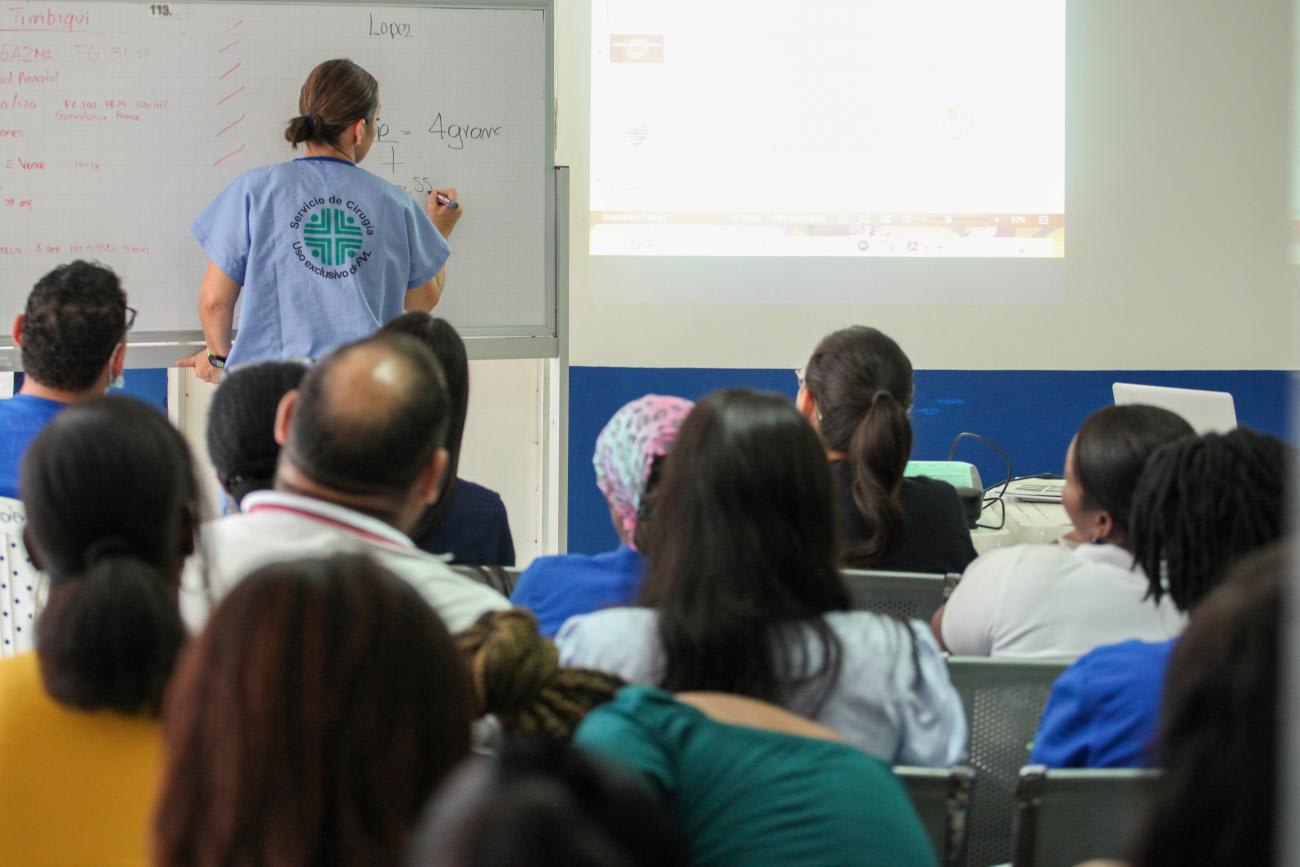
How the Hospital Padrino Strategy Improves Maternal Care
The strategy launched in fourteen hospitals across Cauca in coordination with national, regional, and local governments.
First, hospitals self-evaluate their conditions, infrastructure, and resources for obstetric care using checklists prepared by the hospital and based on recommendations from the Alliance for Innovation in Maternal Health. This evaluation helps gauge the availability of qualified human resources, supplies and medications, safety policies, guides and protocols, and the processes necessary for maternal and perinatal care. The Hospital Padrino strategy helps sponsored hospitals develop processes to strengthen services. Additionally, in alliance with the secretary of health and private companies, the Hospital Padrino strategy donated essential obstetric emergency supplies to the hospitals. The hospital monitors conditions and reviews progress after six months and one year.
The strategy also strengthens the knowledge and skills of the health teams of sponsored hospitals with workshops that combine the theoretical and the practical, emphasizing the development of soft skills for teamwork and the humanization of attention. The training, developed with the secretary of health, is tailored to the leading causes of perinatal maternal morbidity and mortality, and improves the confidence and commitment of health workers.
The strategy also allows pregnant women and other patients at sponsored hospitals to use telemedicine to access specialized services at the Fundación Valle del Lili, accelerating diagnoses and disease management. The hospital developed the platform Liliconnect to share its expertise and document the clinical history of each patient for both the teaching and sponsored institution.
In addition, a dedicated telemedicine service team consisting of a chief physician, an administrative physician, and four nursing assistants are available twenty-four hours a day, seven days a week, to ensure telehealth care in the context of obstetric emergencies requiring immediate support and timely transfers to institutions with better conditions of care.
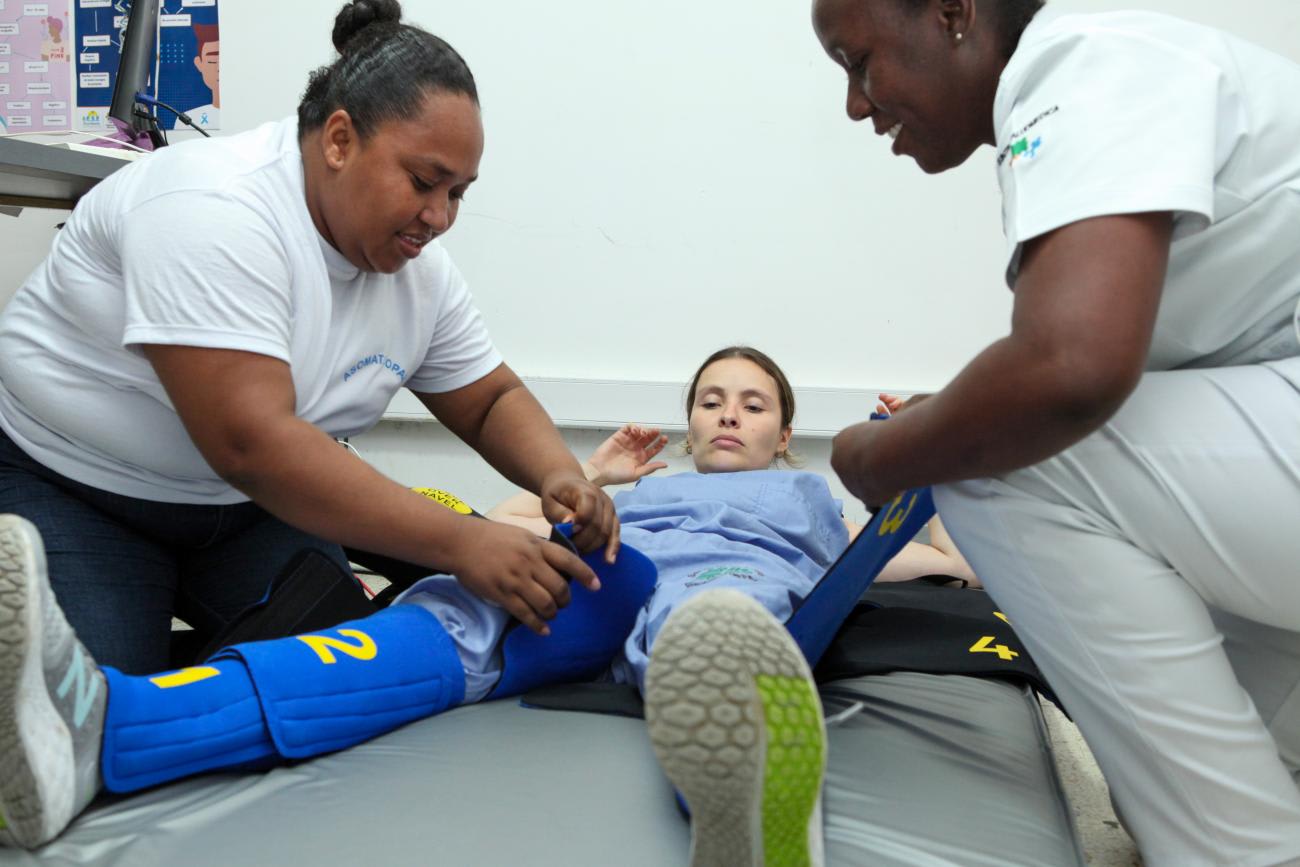
As of November 30, 2023, the strategy has trained 9,511 clinicians at more than two hundred hospitals, and the interconnected network has cared for 6,710 patients, including 4,418 pregnant women. Nearly two-thirds of participating hospitals have recorded improvement in conditions for the care of pregnant women. For example, in 2022, the maternal mortality rate in Valle del Cauca fell by 12.5 per hundred thousand live births, a drop of 84 percent over the previous year.
A qualitative assessment conducted by the Yunus Center at ICESI University confirmed that the quality of management in hospitals within the departamento of Valle del Cauca had also improved. The training had immediate and sustained effects, the evaluation found, improving professional performance and caring for patients with empathy. Health workers who observed these improvements felt further empowered and expressed greater feelings of trust and security. At participating institutions where maternal deaths had been tragically common, they now proudly ticked off entire months without any.
Currently, Hospital Padrino is part of the Social Responsibility Unit within Fundación Valle del Lili and includes more than 150 doctors of different specialties, students, and twenty administrative staff. The strategy has been primarily financially supported by the Fundación Valle del Lili, along with donations from the health secretariat, international organizations, grants, and individuals. This diversification of funding sources will help sustain and further develop the strategy.
Colombia has a real opportunity to affect and significantly enhance maternal health by implementing the Hospital Padrino strategy. Educating clinicians remains essential, but technological developments, including the advent of artificial intelligence for health-care decision-making, may open new opportunities for reducing maternal mortality in low- and middle-income countries.
